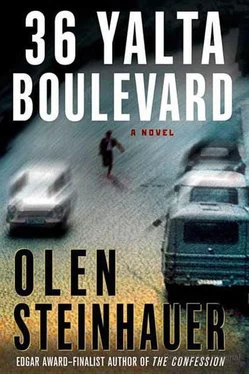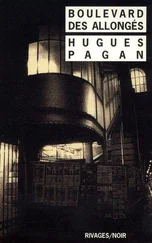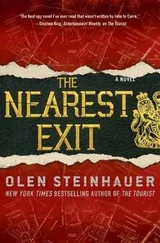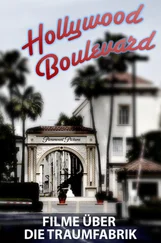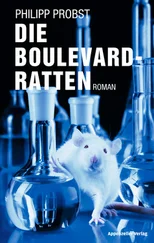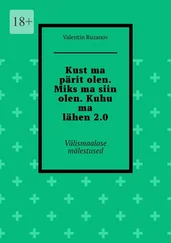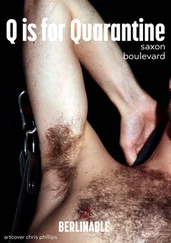Olen Steinhauer - 36 Yalta Boulevard
Здесь есть возможность читать онлайн «Olen Steinhauer - 36 Yalta Boulevard» весь текст электронной книги совершенно бесплатно (целиком полную версию без сокращений). В некоторых случаях можно слушать аудио, скачать через торрент в формате fb2 и присутствует краткое содержание. Жанр: Политический детектив, на английском языке. Описание произведения, (предисловие) а так же отзывы посетителей доступны на портале библиотеки ЛибКат.
- Название:36 Yalta Boulevard
- Автор:
- Жанр:
- Год:неизвестен
- ISBN:нет данных
- Рейтинг книги:3 / 5. Голосов: 1
-
Избранное:Добавить в избранное
- Отзывы:
-
Ваша оценка:
- 60
- 1
- 2
- 3
- 4
- 5
36 Yalta Boulevard: краткое содержание, описание и аннотация
Предлагаем к чтению аннотацию, описание, краткое содержание или предисловие (зависит от того, что написал сам автор книги «36 Yalta Boulevard»). Если вы не нашли необходимую информацию о книге — напишите в комментариях, мы постараемся отыскать её.
36 Yalta Boulevard — читать онлайн бесплатно полную книгу (весь текст) целиком
Ниже представлен текст книги, разбитый по страницам. Система сохранения места последней прочитанной страницы, позволяет с удобством читать онлайн бесплатно книгу «36 Yalta Boulevard», без необходимости каждый раз заново искать на чём Вы остановились. Поставьте закладку, и сможете в любой момент перейти на страницу, на которой закончили чтение.
Интервал:
Закладка:
He expected promotion.
But he’s a simpleton, said Cerny, because the Ministry never planned to promote a hired gun-a half-educated Saxon thug-to the level of rezident. Then you arrived, with only minor Austrian experience, and Lochert’s pride… well, he couldn’t take it, could he?
If the Lieutenant General believes his story, why aren’t I in prison?
Why aren’t you dead, you mean. Cerny gripped his arm and whispered, Because you’ve got me, Brano. I’ve still got a few tricks up my sleeve.
He wiped the sweat off himself with a hand towel, and as he finished dressing, Mother stumbled to his bedroom door. She rubbed her bloodshot eyes. “Where were you last night? Did you get any sleep?”
“Some. I’ve got to run.”
“Where?”
“To meet Captain Rasko.”
She leaned against the wall, stifling a yawn. “Why on earth are you seeing him this early?”
“There was a murder last night.”
“There was… what? ”
“I’ll tell you about it later.” He kissed her forehead.
Captain Rasko had not yet dressed. He asked Brano to make some coffee, then sprinted back to the bedroom. Brano picked through piles of dishes for the coffeepot and cleaned it thoroughly. There was a bag of ground beans in the cabinet.
Rasko straightened his tie as he drank. “This is better than my coffee.”
“I cleaned the pot.”
“Oh, is that the trick?”
Brano set down his cup and used a rag to wipe the counter clean. “You told me you hadn’t dealt with murder before. What kinds of crimes do you usually deal with?”
“Petty stuff. Fistfights and drunkenness. Thievery. Gambling-the boys here like Cucumber best-but I only become aware of gambling when it leads to fistfights or thievery. These guys are serious about their card games.”
“I’ve heard.”
“Had your breakfast yet?”
“I don’t usually eat breakfast.”
“Good. Because we’re going to see the body first.”
As they parked behind the doctor’s house, two small blond boys in pale blue pajamas ran out the back door, whistling clouds of breath into the cold air as they reached Rasko’s side. They called him “uncle” and held his legs as he tried to approach the back door, where the doctor, an old man in a white smock, stood smoking. Rasko rubbed the boys’ heads. “Juliusz, meet Major Brano Sev.”
Juliusz came down a step. “Sev? Iwona’s…?”
Brano nodded.
“From the Capital, right?”
“Yes.”
The doctor held out a damp hand but didn’t smile. “Pleased to meet you.” While the boys fought in their room, the men settled in the kitchen with coffee and cigarettes. Juliusz had picked up Jakob Bieniek’s body just before dawn and made a preliminary examination. “A savage. That’s who did it. I counted a hundred and thirty-four slices, but my eyes got tired toward the end. There are more.”
“Was it done there?” asked Brano.
“Eh?”
“Was he killed in the woods, or was his body brought there afterward?”
“The woods,” said the doctor. “Yes, in the woods. He got leaves in his hair-what little he has-while he was struggling. And when he was attacked he still had his shirt on. There were fibers in some cuts.”
Rasko looked at his hands. Brano took a final sip of coffee and stood up. “Shall we see the body?”
Juliusz had laid Bieniek on a table in a sunny room with large windows and white cabinets that held his equipment. One white napkin covered his face, another his genitalia. Between them, his stomach rose like a low mountain, etched, like his arms, with white marks, each between a couple of inches and half a foot long. The longer slices had split and puckered the flesh. All the blood had been washed away.
The doctor removed the face napkin and stepped back.
“How about that,” said Rasko. “He kind of looks like Comrade Sev, doesn’t he?”
The doctor bent over Bieniek’s white face, which was blemished where the gag had stretched over his lips and cheeks, then glanced back at Brano. “You know, you’re right.”
They were both right. Like Brano’s, Bieniek’s face was wide and round, with flat cheekbones, and he even had a mole on his left cheek, where Brano’s three moles lay. But unlike Brano, Bieniek was fat, his scalp was almost bald, and he had a thin beard that was more than a few days’ forgetfulness.
“Here,” said Juliusz. He opened a cabinet and took out a brown paper bag that he handed to Rasko. “These are the handkerchiefs used to keep him quiet. One in his mouth, the other around it.”
Rasko took the bag but did not open it.
“And these are his documents?” Brano pointed at a maroon passport on the table.
“Yes.”
Brano glanced at the passport photo-a clean-shaven version of the man on the table, smiling, with color in his cheeks-and slid it into his pocket. “Are we sure he died from the cuts?”
“I’d bet on it,” said Juliusz. “Once the carotid artery was hit, the fight was over.”
“Razor blade?”
“I’d bet on that, too.”
“Any thoughts on the assailant?”
The doctor blinked a few times. “Don’t know how many there were-it could have been a single energetic killer. But whoever it was, he didn’t know a thing about anatomy. Cutting that artery was dumb luck.”
“Fingerprints?”
The doctor inhaled. “Comrade Major, this isn’t the Capital.”
Brano looked at Rasko. “Do you have any questions?”
Captain Rasko was staring at Jakob Bieniek’s swollen ankles.
“Comrade Captain?”
His tongue danced inside his cheek. “No, no more questions.”
Jakob Bieniek’s house was on the edge of the center, another two-bedroom surrounded by ridged, frozen mud. Like Klara and Lucjan’s house, this one had been painted a Sanok white that the weather had quickly turned gray. There was no walkway, just a path of old boot prints leading to the locked front door. Rasko nodded at the window over the door handle. “Shall I?”
“Be my guest,” said Brano.
He shoved an elbow into the glass, knocked aside some loose pieces, then unlocked the door from the inside.
The place smelled sour, as if something were rotting in the back room, but it was only the smell of a shut-in who allowed his unwashed body to fester in a small, airtight space.
“What a shithole,” said Rasko.
Unlike Dijana Frankovic, Brano Sev did not believe in fate, but as he walked through Jakob Bieniek’s cluttered, musty living quarters, he thought that if fate had dealt him a different hand, this could easily have been him. The instinctual urge for solitude he shared with this dead milkman was a curse in a small town; it was punished by internal exile. Bieniek’s exile may have been chosen at first, after his wife’s death, but soon a whispered pact among the townsfolk had assured that he could not escape his sphere of silence. Brano had experienced that silence in the Capital, but unlike Bieniek, Brano had had Yalta Boulevard. Yalta had encouraged his hermetic nature; the Ministry rewarded the virtues of solitude and secrecy.
The furniture in the living room was threadbare, the kitchen worse than even Rasko’s. But the stink was centered in the bedroom, where greasy plates and filthy underwear were spread about. At the end of the bed, a small, cluttered desk looked out the front window, and beside the desk sat two cardboard boxes stuffed with papers.
While Rasko opened the window, Brano squatted and leafed through the boxes. At first he couldn’t decipher the quick scribbles. He brought a few pages to the desk for better light.
“What’s that?” asked Rasko.
Brano read aloud: “16 October 1966: Maria eats liver with potatoes on Mondays. She’s done it three weeks running, so that is a rule of thumb. She does it for strength, maybe, because on Monday afternoons Wiktor comes to visit and she has to clean the house afterward, before Krysztof returns.” He looked up. “Who are Maria and Krysztof?”
Читать дальшеИнтервал:
Закладка:
Похожие книги на «36 Yalta Boulevard»
Представляем Вашему вниманию похожие книги на «36 Yalta Boulevard» списком для выбора. Мы отобрали схожую по названию и смыслу литературу в надежде предоставить читателям больше вариантов отыскать новые, интересные, ещё непрочитанные произведения.
Обсуждение, отзывы о книге «36 Yalta Boulevard» и просто собственные мнения читателей. Оставьте ваши комментарии, напишите, что Вы думаете о произведении, его смысле или главных героях. Укажите что конкретно понравилось, а что нет, и почему Вы так считаете.
